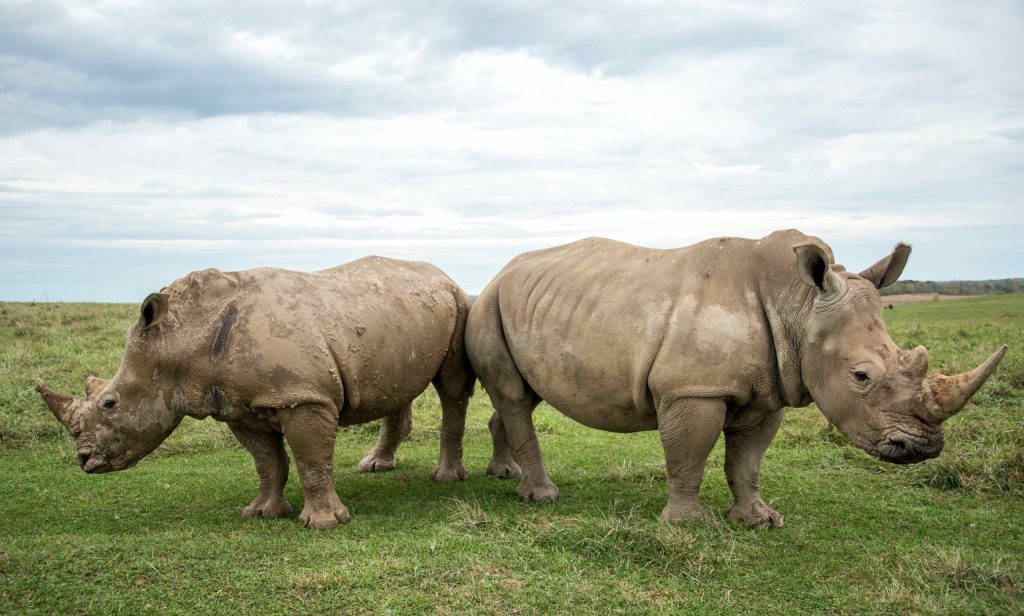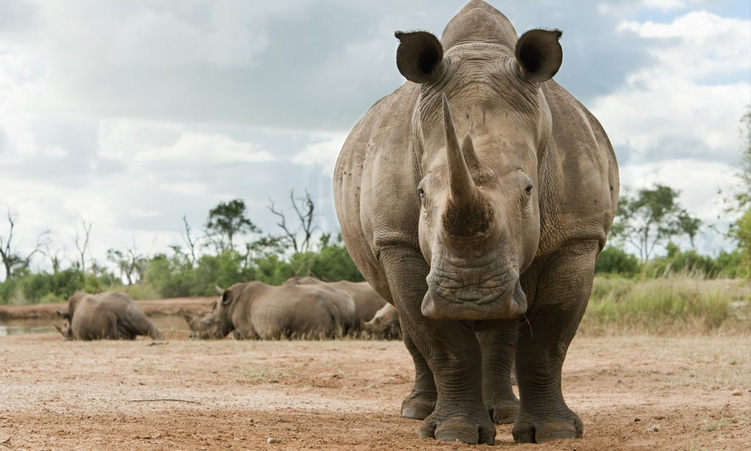The 40 white rhinos that were transported from Namibia to the United States (US) yesterday, are valued at N$20 million.
Ministry of environment, forestry and tourism spokesperson Romeo Muyunda says the private owner of the rhinos was issued with an export permit. The owner was also given Convention on International Trade in Endangered Species (Cites) of wild fauna and flora permits granting him permission to sell the rhinos in the US.
“We issued them with two permits. One is the Cites, which requires that the person gets the permission from the importing and exporting country,” says Muyunda.
The Cites permit ensures that international trade of wild animals does not threaten the survival of the species.
Though the owner applied for 42 rhinos, only 40 were caught.
Muyunda says each rhino in Namibia is valued at N$500 000.
He further says some rhinos are brought from private farms in South Africa, where the ministry has no jurisdiction.
“They buy them from private people from South Africa, so they are free to utilise them in accordance with the law.”
Muyunda says the ministry is satisfied with the reasons obtained from the proponents when applying for the tenancy.
“That is why we have approved the tenancy,” he adds.
“These are privately owned animals, they are on a private estate and the person decided to sell the rhinos,” Muyunda says.

FLAWED PROCESS
Namibia Environmental Education Network coordinator Liina Nantinda says claims of the private ownership of wildlife are fundamentally flawed.
“Wildlife animals are sentient beings with complex needs that cannot be fully met in captivity,” Nantinda says.
The trade of these animals contributes to their exploitation and the destruction of their natural habitat, she adds.
“While Namibia’s unique approach to wildlife management balances private ownership with state regulations, concerns regarding animal welfare, habitat destruction and ethical implications persist,” she says.
According to Nantinda, the system aims to strike a balance between conservation and economic benefits.
“To effectively protect wildlife and their habitats, I advocate strong government regulations that prohibit private ownership and the trade of wildlife animals.
“Simultaneously, we must promote sustainable conservation practices and raise awareness about the importance of protecting these valuable species.”
Muyunda says the rhinos were due to be airlifted from the Hosea Kutako International Airport yesterday, to be transported to Texas.
The owner was provided with an export licence and the transaction followed the proper ministerial frameworks, he adds.
According to Save the Rhino Trust spokesperson Simson Uri-Khob, certain permits are needed to sell or trade in rhinos.

He highlights that farmers are only allowed to sell white rhinos, as all black rhinos belong to the government.
“They can sell them, because it’s their property, but there are permits that should be in place to do that.”
According to Uri-Khob, this includes veterinary permits, transport permits and health permits, among others.
Uri-Khob, however, says he does not believe it is right for rhinos to be transported in aeroplanes for 24 hours or longer in closed containers.
He made reference to the South African farmer, John Williams, who couldn’t afford to run his farm with the 2 000 rhinos he had.
“He sold the whole farm with the rhinos to African Parks, and African Parks didn’t send them anywhere else except for Tanzania and Kenya,” he says.
According to Uri -Khob, Save the Rhino Trust is doing its best to protect and save rhinos, however, the organisation cannot control private owners who opt to trade white rhinos.
Stay informed with The Namibian – your source for credible journalism. Get in-depth reporting and opinions for
only N$85 a month. Invest in journalism, invest in democracy –
Subscribe Now!







